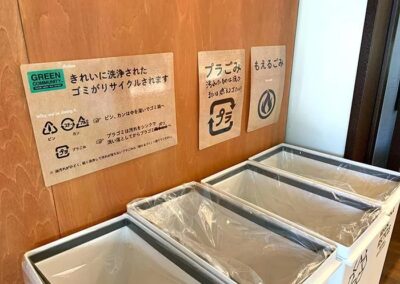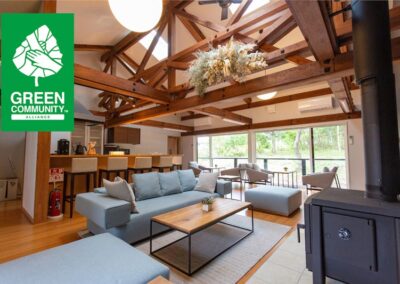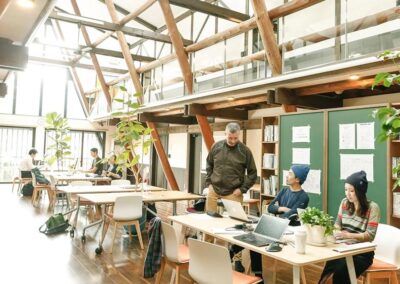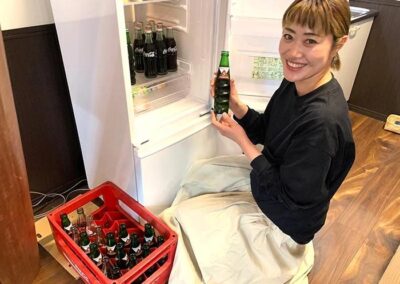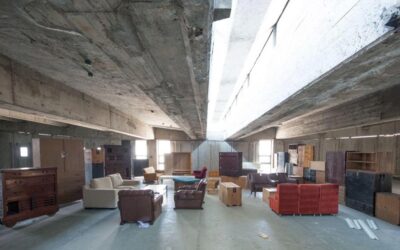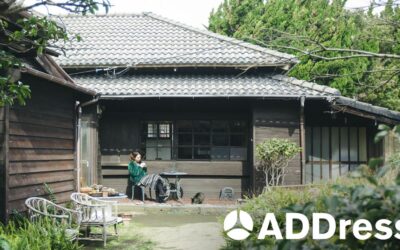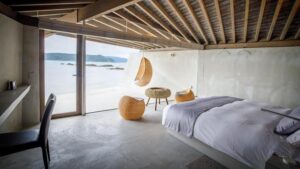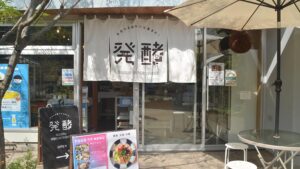A co-working office that creates opprtunities for collaboration to revitalize Fujimi Town
One of the biggest sustainability challenges faced by companies across all industries is the issue of waste. In recent times, more and more companies and stores have been focusing on achieving zero waste, which involves eliminating landfill waste generated from their business activities.
However, achieving zero waste is not an easy task for organizations. It can be challenging to ensure everyone in the office understands the rules for separating garbage correctly. To promote a cooperative attitude, it is essential to establish a common understanding of why it is crucial to reduce waste in the first place. Additionally, coming up with creative ideas is crucial to reduce waste.
So, how should companies and their employees tackle sustainability issues like waste in their daily business operations? One example that offers some insight is the Fujimi Mori-No-Office, a complex facility in Fujimi Town, Suwa District, Nagano Prefecture. Mori-No-Office comprises private offices, co-working spaces, meeting rooms, and a cafeteria.
Mori-No-Office was established in December 2015 as a migration measure to help solve the population decline in Fujimi Town. In June 2021, it announced that it would collaborate with the general incorporated association Zero Waste Japan to launch the first co-working space in Japan. They also introduced “Zero Waste Certification” and training services for shared offices.
Achieving zero waste can be a daunting task, but the Mori-No-Office offers a potential blueprint for success.
Think from the charm, not from the task
“At first, I didn’t know where to start. There are many problems, especially environmental problems,” the creative director of Fujimi Mori-No-Office, Yuta Matsuda, shared.
For the members of Mori-No-Office, who live and work in the nature-rich town of Fujimi, environmental issues such as climate change and waste have never felt distant. However, they were unsure of how to tackle these issues. It was at this time that a friend, who worked at Earth Company, a general incorporated association with bases in Bali and Japan and a founding member of Mori-No-Office, approached them. Earth Company was launching a service called Operation Green, which aimed to guide organizations in ecological transformation towards sustainability, and suggested Mori-No-Office participate as a model case.
“The Operation Green team thought Mori-No-Office was a good fit for the program, so why don’t you join as a model case?” said Matsuda.
“The Operation Green team advised me to start by thinking about the ‘attractiveness’ of this area. When I started thinking about the issues, I felt like I had to take action. However, by considering the area’s charm, I was able to think about the issues from a positive perspective – ‘How can I protect this charm?'”
Communication was the cornerstone of the transformation
In June 2020, the Mori-No-Office launched a project called “Green Community” after numerous discussions. As part of this initiative, the office supplies were replaced with items that have a low environmental impact and are locally produced. Additionally, they stopped selling PET bottle beverages and replaced them with glass bottle products bought from local stores. The office also started selling snacks by weight, and “eco-charging” was introduced for facility users. To cover the cost of introducing equipment, materials, and local products with a low environmental impact, membership registration and renewal fees were charged. The Mori-No-Office promoted the greening of the coworking space through multiple measures.
When switching to household items with a lower environmental impact, friction sometimes arises between those who want to make the switch and those who accept the change. I asked for user feedback to determine if the introduction went smoothly.
“The transition to environmentally-friendly items was easier than expected, thanks to daily communication about the initiatives. The number of recycle bins was reduced gradually until they were eliminated completely.
“However, some members initially struggled with the change and were seen standing in front of trash cans with plastic bottles. Staff explained the new system carefully, clarifying what can and cannot be recycled.”
Mori-No-Office’s success in going green can be attributed to the strong relationship between the staff and members, which was cultivated long before the initiative was launched. The trust built through regular and respectful communication with members enabled them to form a partnership working towards sustainability, rather than just an operator and user relationship.
Coworking space as a starting point to change the future
And in June 2021, one year after the start of the Green Community initiative, Mori-No-Office announced that it will begin offering Zero Waste certification for co-working spaces and shared offices in collaboration with Zero Waste Japan, a general incorporated association that supports the creation and implementation of waste reduction measures for local governments, companies, and organizations.
The specifics of the certification acquisition process will be announced in the future. However, during this process, a one-night, two-day training session will be provided at the Mori-No-Office. The training will provide a forum for businesses to ideate on sustainable office management, such as a simulated experience of the eco measures that are actually being implemented at the Mori-No-Office. Matsuda commented on this:
“In the training, I want to start by discussing what kind of place a coworking space is in the first place. I will carefully explain how we have been operating because I believe sustainable conversion will not go well unless we carefully think about it.”
Even if it’s just a coworking space, there are different shapes and forms. If measures are unilaterally promoted without a sufficient relationship of trust between operators and users, users will be confused. In some cases, there may even be a backlash.
Through many years of experience, the Mori-No-Office knows how to promote sustainability in a coworking space that is visited and used by a wide variety of people.
“A coworking space is a place where people involved in various businesses and commerce gather and work. Businesses related to the office, such as companies, members, suppliers, and business partners, can also be involved, and everyone can work on sustainability.”
“If the member’s business is a restaurant, we can discuss together whether it is possible to eliminate disposable packaging. Coworking spaces and shared offices will be the starting point for changing the future. That is the vision we are aiming for.”
As seen from the name “Community” in Green Community, the Mori-No-Office aims to spread sustainability efforts not only within their own offices but also in the offices of member companies and other coworking spaces.
As business operators of a coworking space, how can we tackle global issues? We want to be not only a place to experiment with new ways of working but also a place to spread a new awareness of the environment. Matsuda and others are working with these thoughts in mind.
The future changes from the workplace. We look forward to the future of coworking spaces and offices led by the Fujimi Mori-No-Office.
Originally published on IDEAS FOR GOOD.
Covered on Zenbird.Media.

